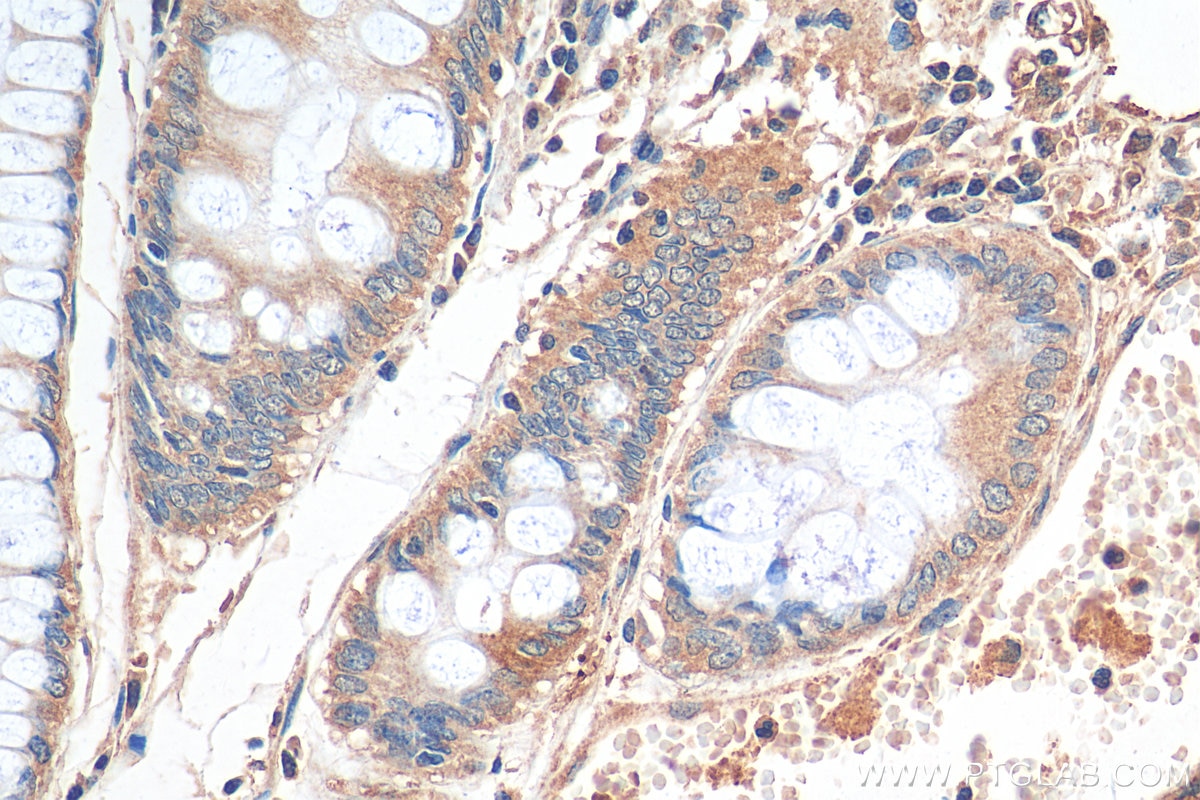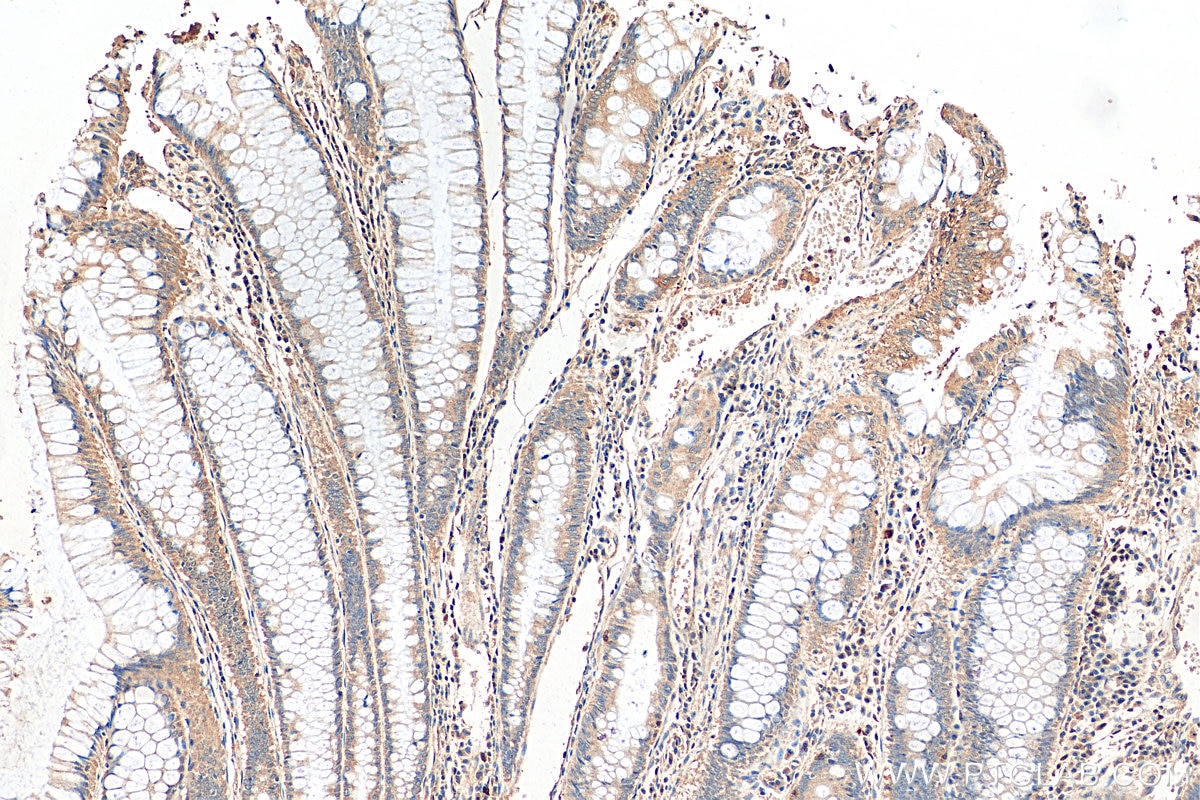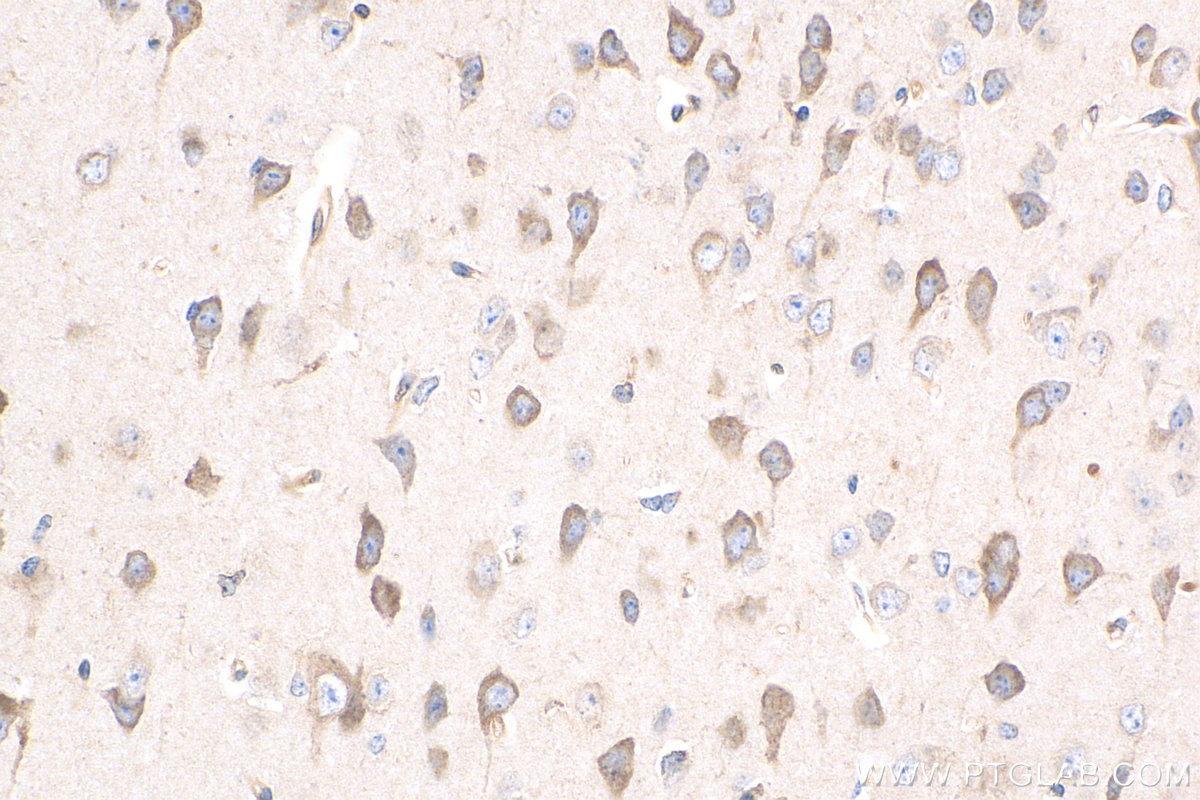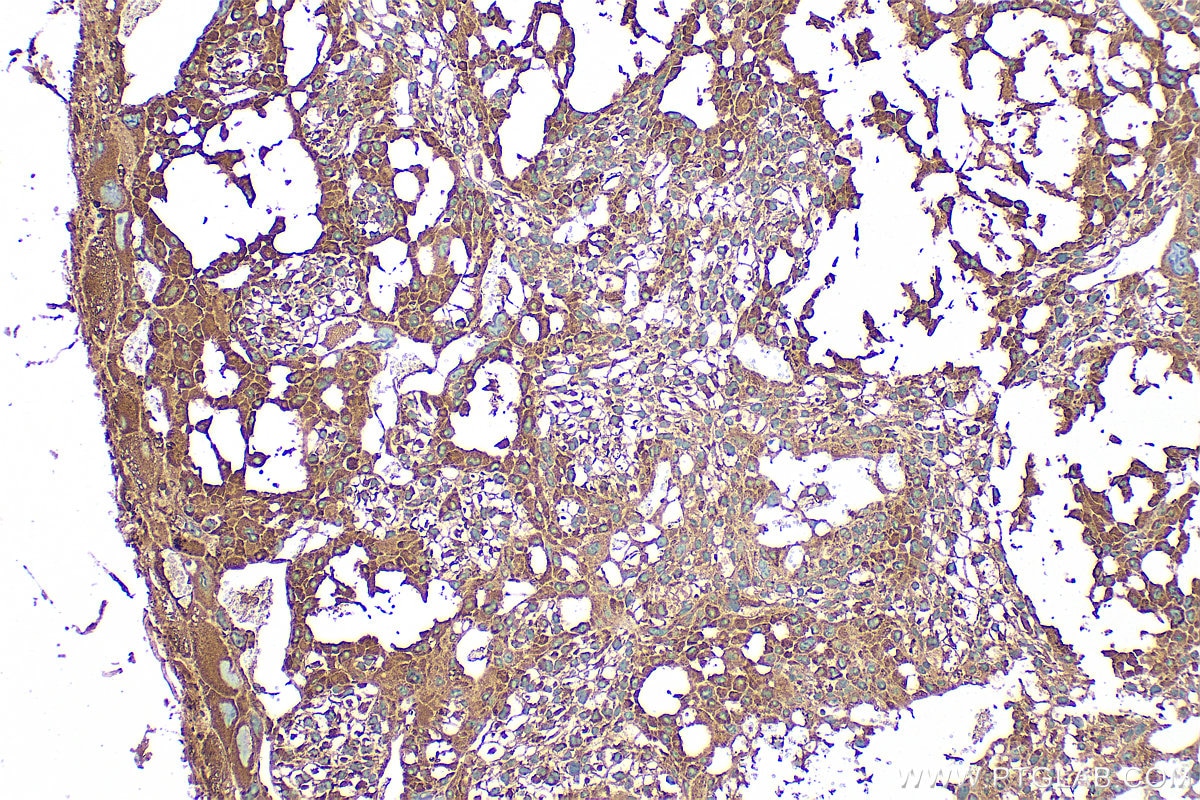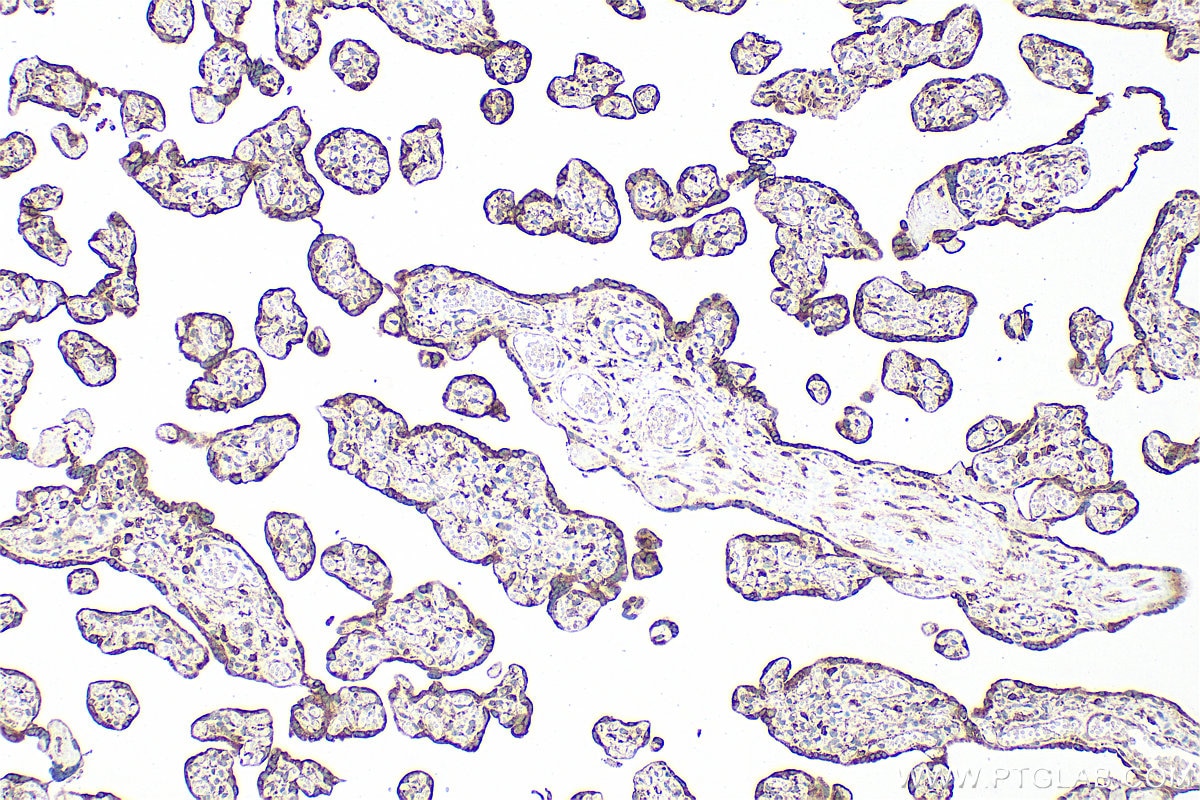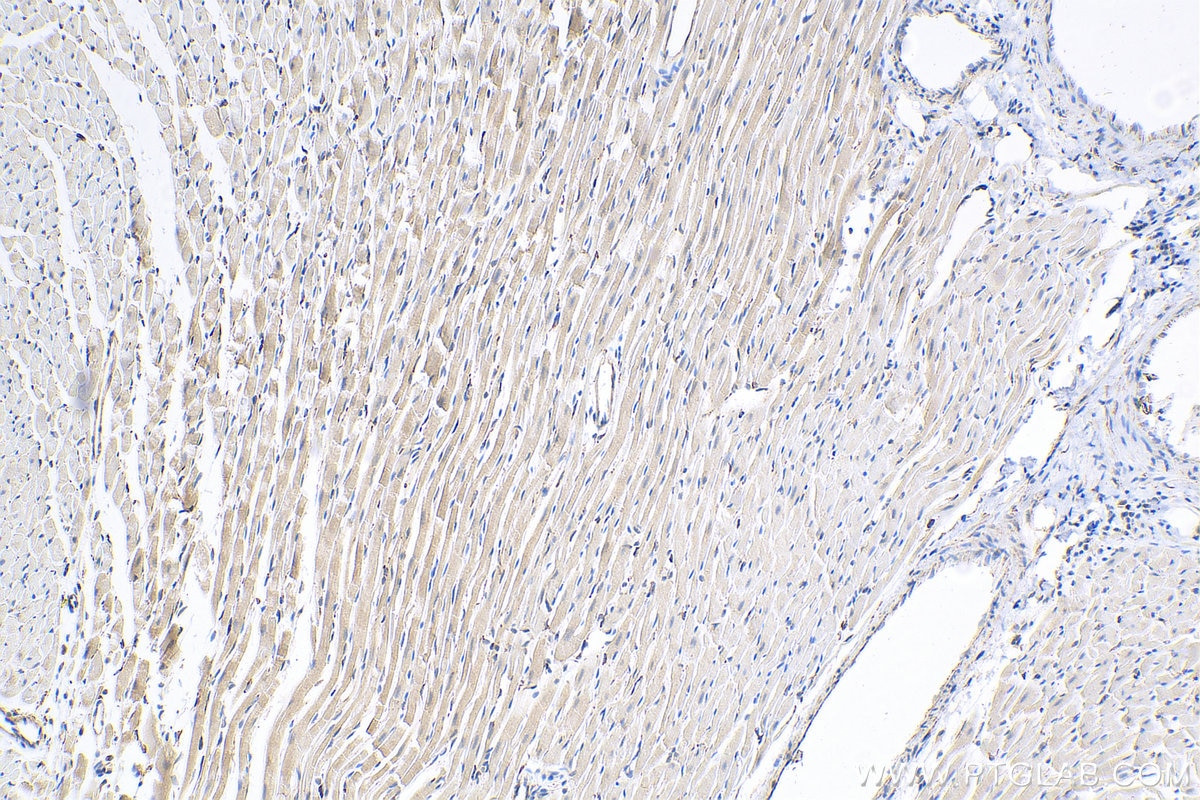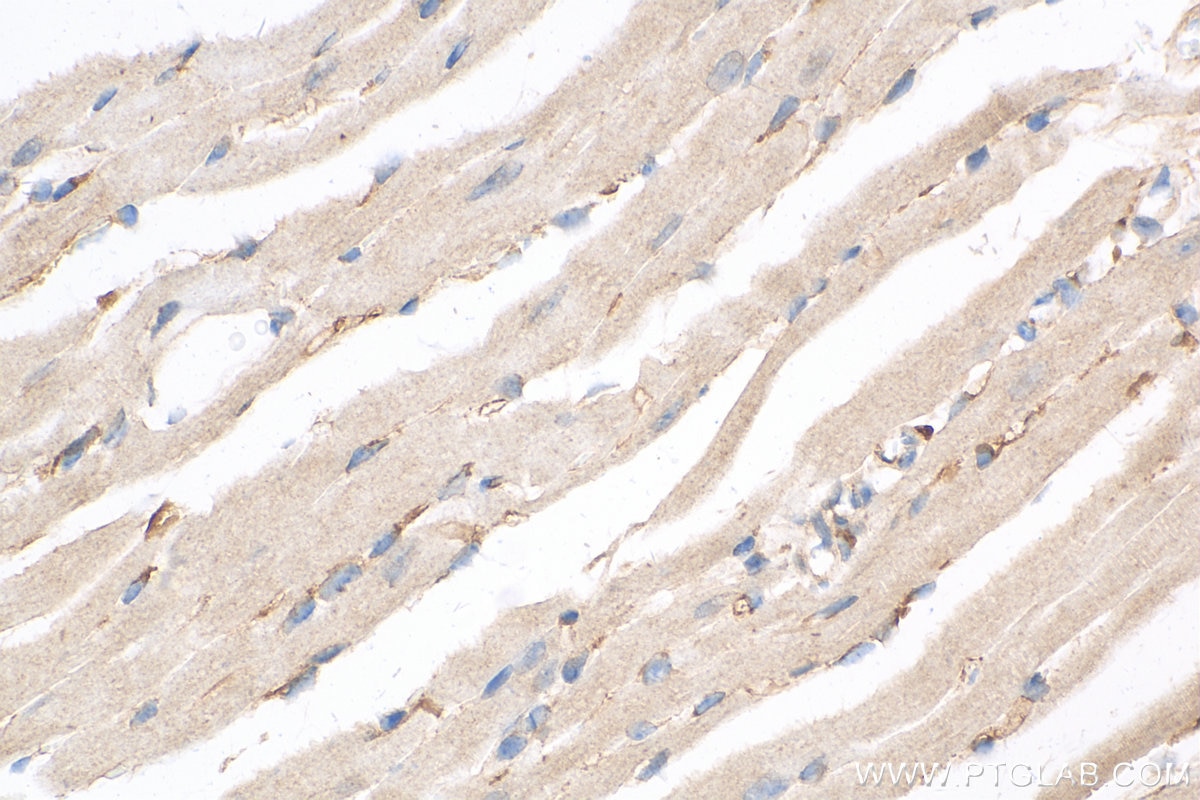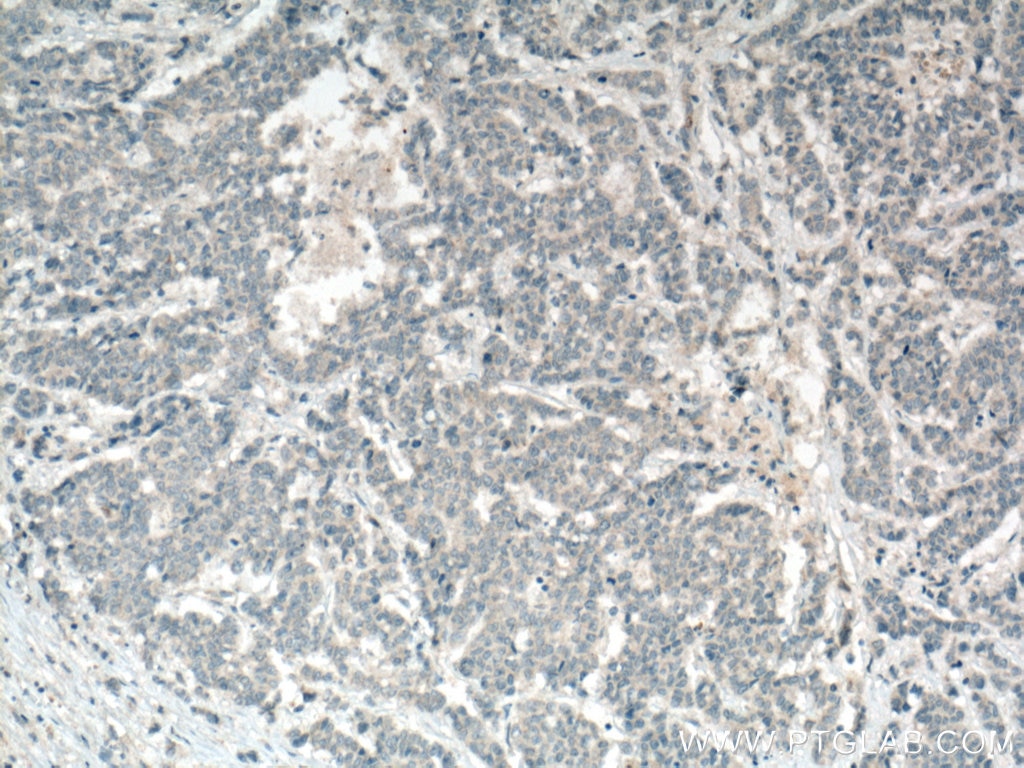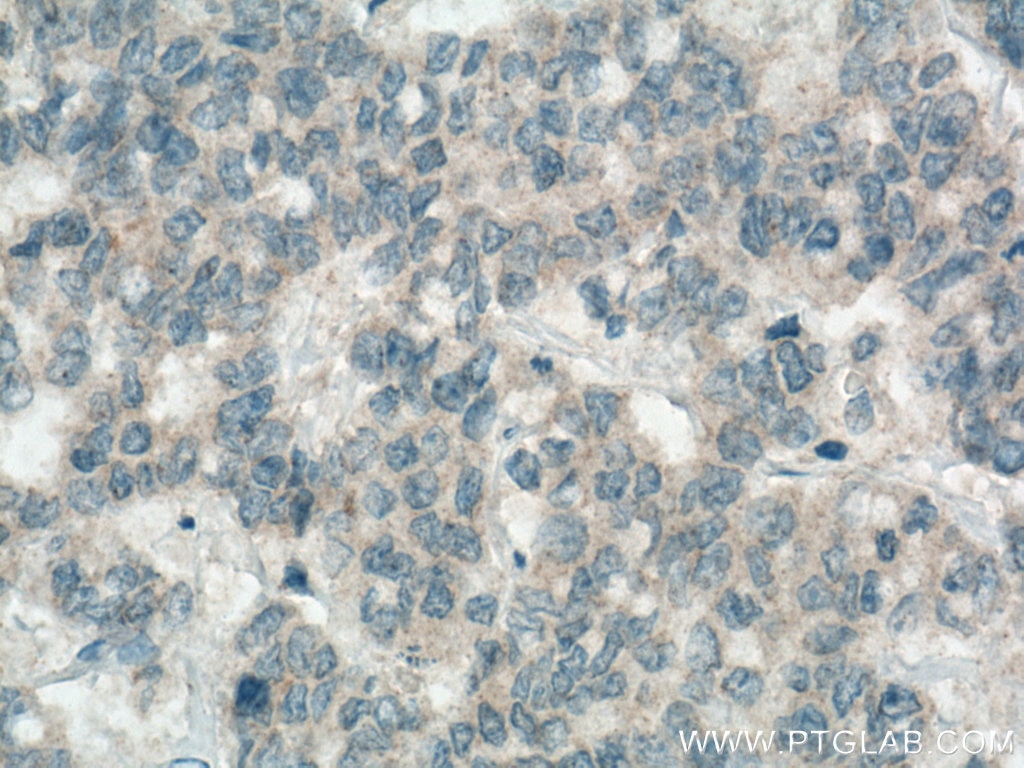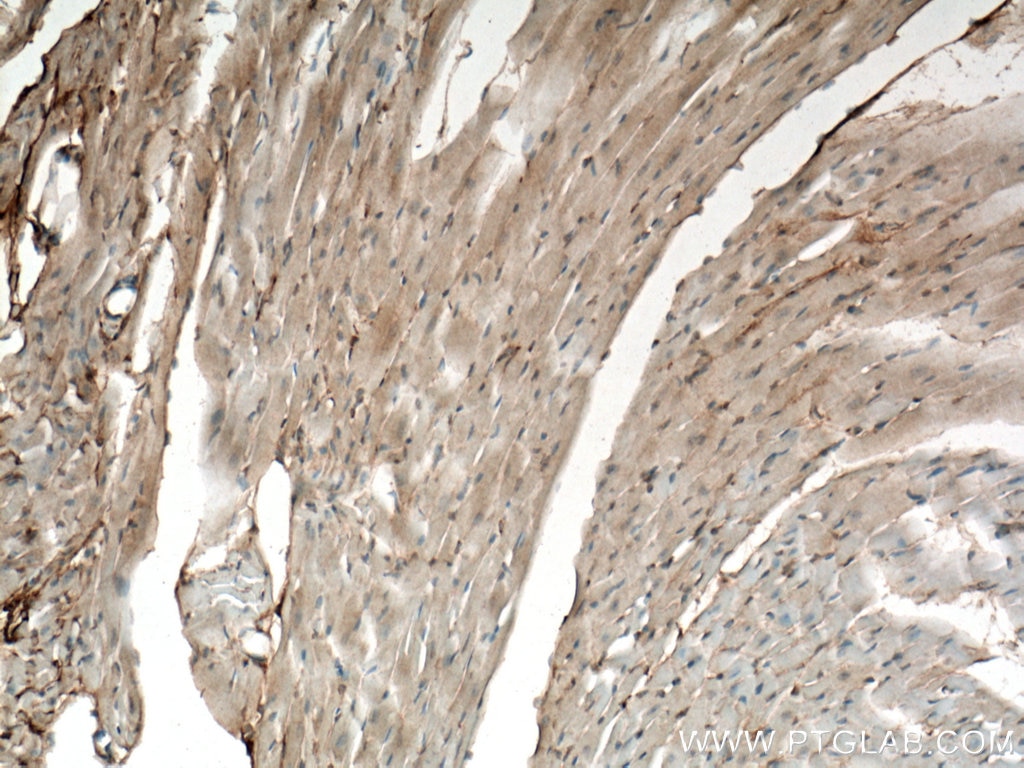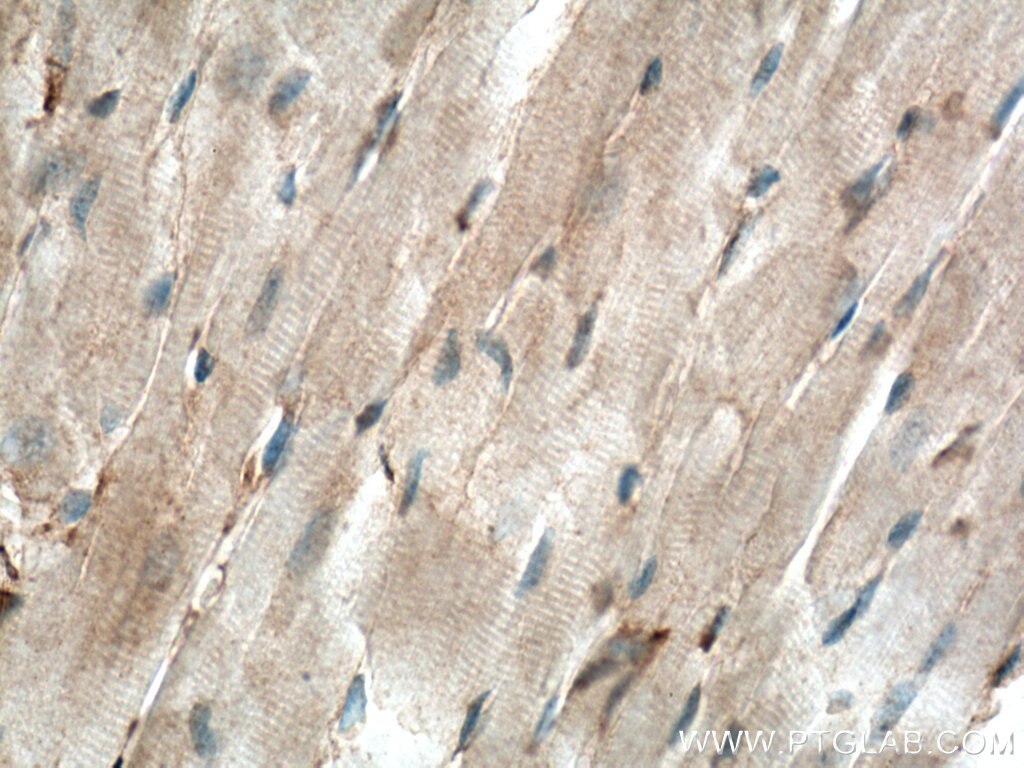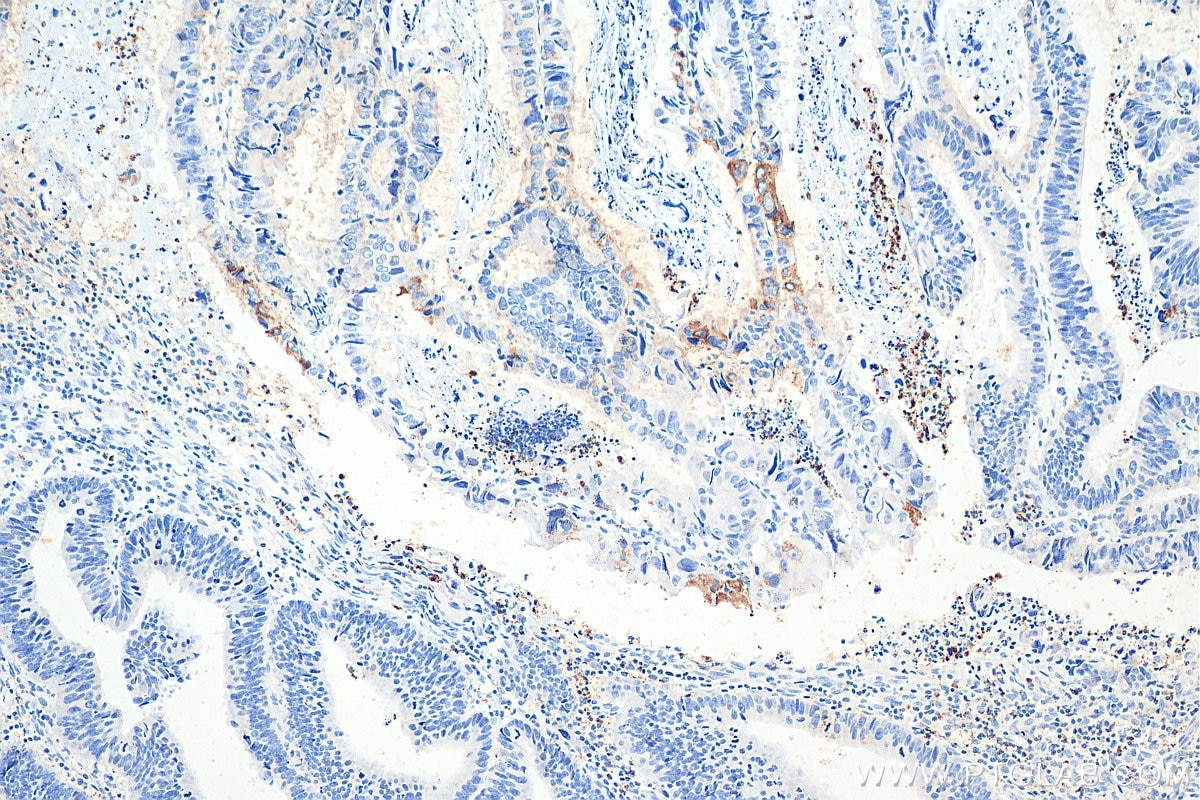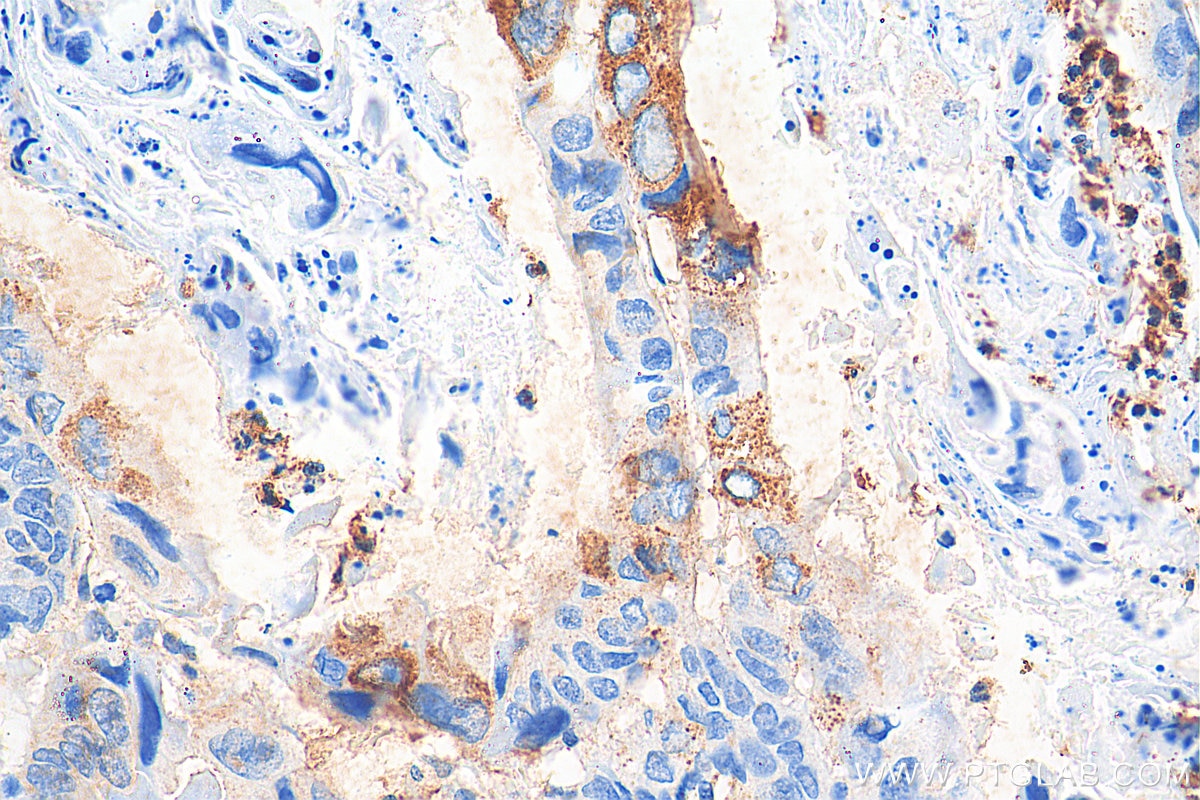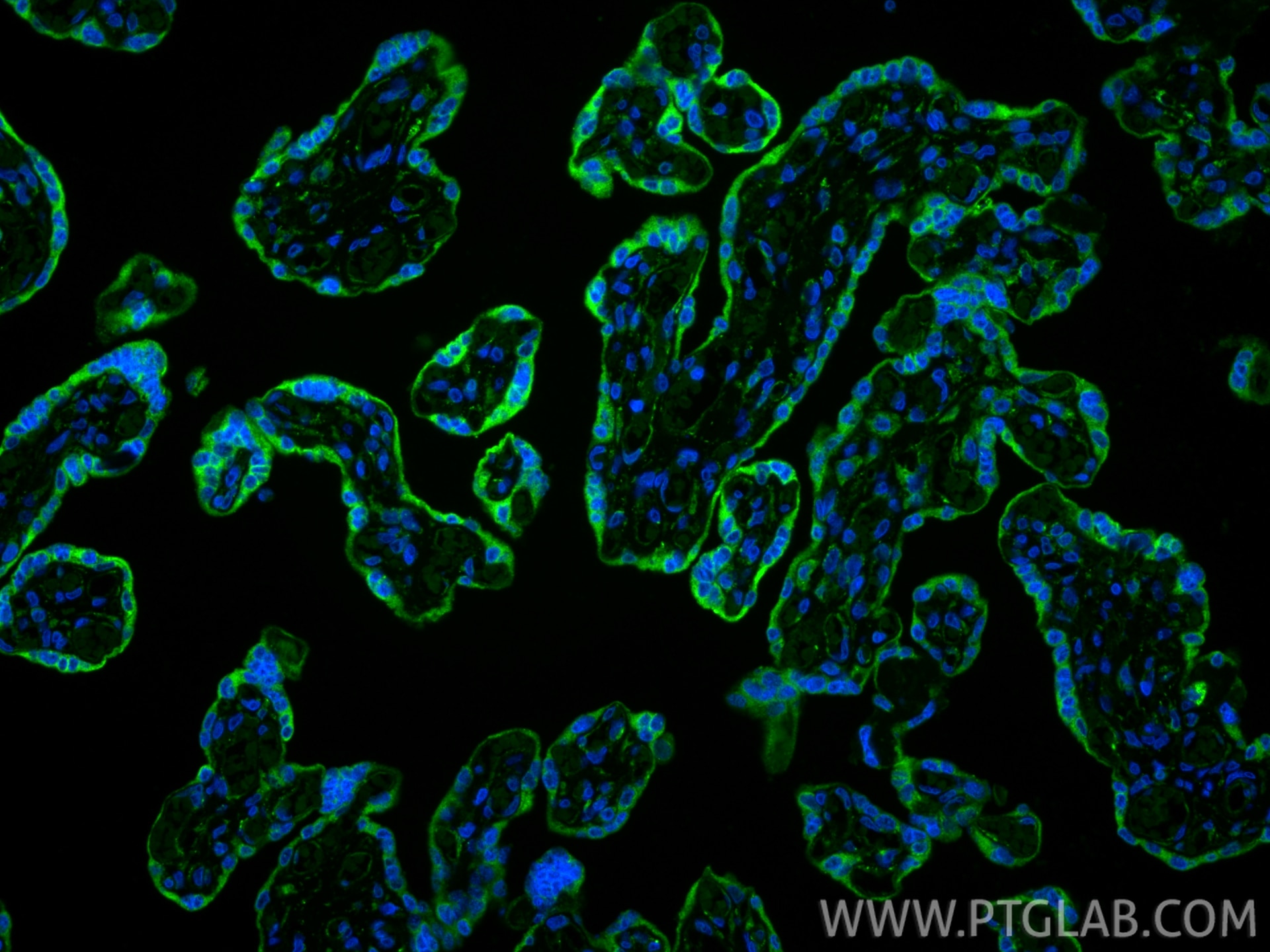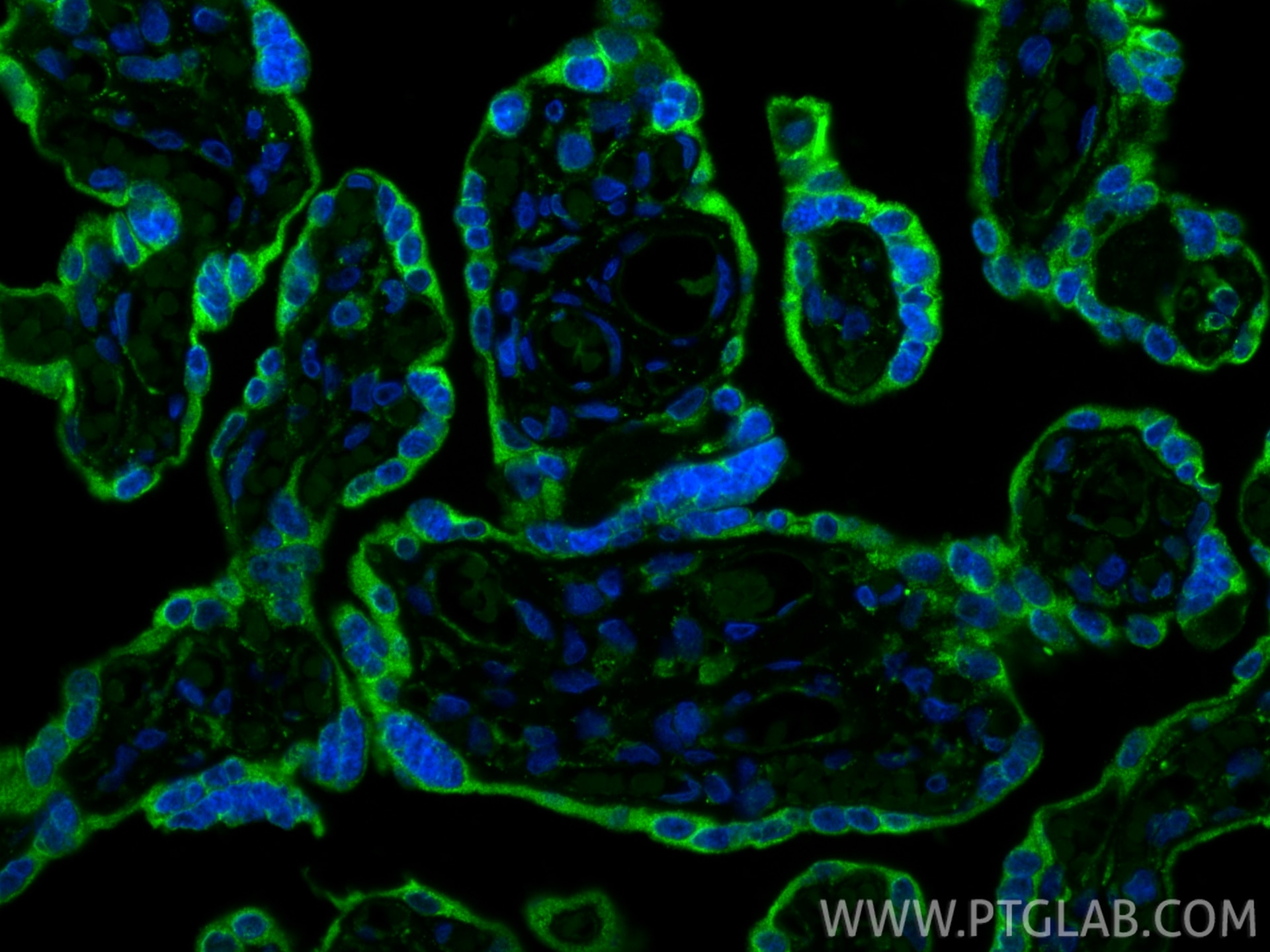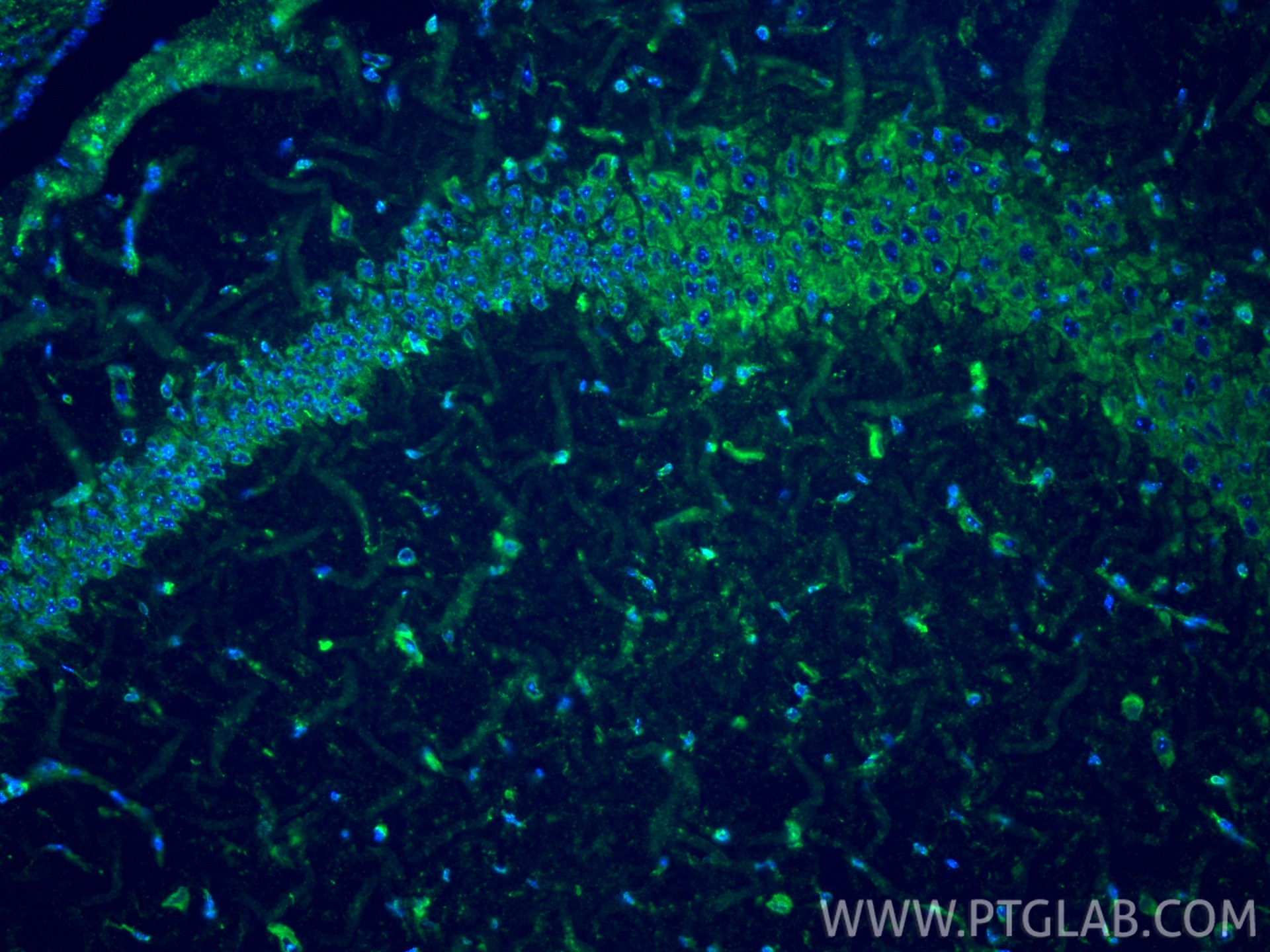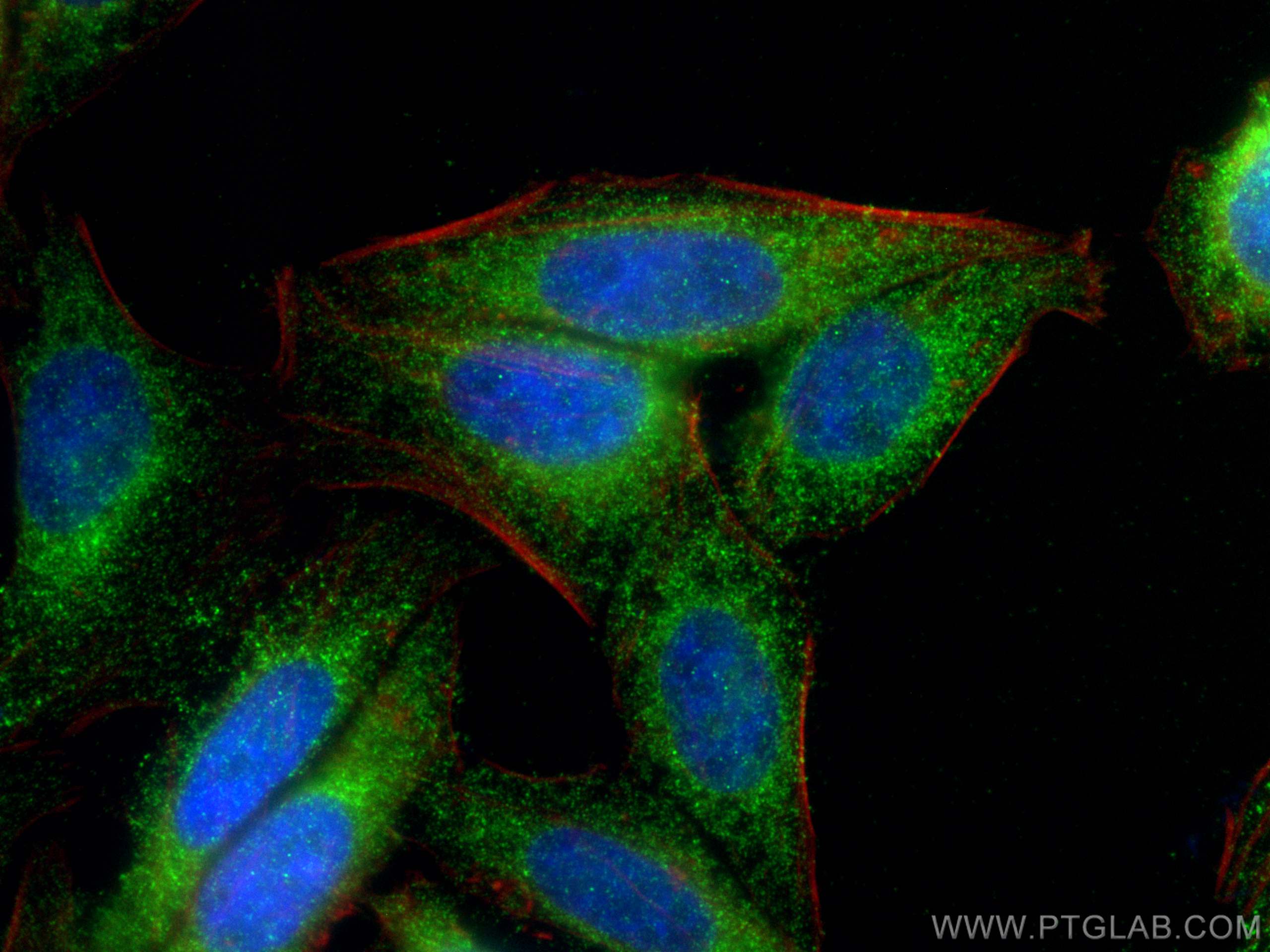Tested Applications
| Positive IHC detected in | human colon cancer tissue, human placenta tissue, mouse brain tissue, mouse heart tissue, mouse placenta tissue, rat heart tissue Note: suggested antigen retrieval with TE buffer pH 9.0; (*) Alternatively, antigen retrieval may be performed with citrate buffer pH 6.0 |
| Positive IF-P detected in | human placenta tissue, mouse brain tissue |
| Positive IF/ICC detected in | HepG2 cells |
Recommended dilution
| Application | Dilution |
|---|---|
| Immunohistochemistry (IHC) | IHC : 1:50-1:500 |
| Immunofluorescence (IF)-P | IF-P : 1:50-1:500 |
| Immunofluorescence (IF)/ICC | IF/ICC : 1:50-1:500 |
| It is recommended that this reagent should be titrated in each testing system to obtain optimal results. | |
| Sample-dependent, Check data in validation data gallery. | |
Published Applications
| IHC | See 3 publications below |
| IF | See 3 publications below |
Product Information
11497-1-AP targets Apelin in IHC, IF/ICC, IF-P, ELISA applications and shows reactivity with human, mouse, rat samples.
| Tested Reactivity | human, mouse, rat |
| Cited Reactivity | human, mouse, rat |
| Host / Isotype | Rabbit / IgG |
| Class | Polyclonal |
| Type | Antibody |
| Immunogen |
CatNo: Ag2047 Product name: Recombinant human APLN protein Source: e coli.-derived, PGEX-4T Tag: GST Domain: 1-77 aa of BC021104 Sequence: MNLRLCVQALLLLWLSLTAVCGGSLMPLPDGNGLEDGNVRHLVQPRGSRNGPGPWQGGRRKFRRQRPRLSHKGPMPF Predict reactive species |
| Full Name | apelin |
| Calculated Molecular Weight | 77 aa, 9 kDa |
| GenBank Accession Number | BC021104 |
| Gene Symbol | Apelin |
| Gene ID (NCBI) | 8862 |
| RRID | AB_2877771 |
| Conjugate | Unconjugated |
| Form | Liquid |
| Purification Method | Antigen affinity purification |
| UNIPROT ID | Q9ULZ1 |
| Storage Buffer | PBS with 0.02% sodium azide and 50% glycerol, pH 7.3. |
| Storage Conditions | Store at -20°C. Stable for one year after shipment. Aliquoting is unnecessary for -20oC storage. 20ul sizes contain 0.1% BSA. |
Background Information
Apelin, isolated from bovine stomach tissue extractsis, is recognized as the endogenous ligand of the angiotensin-like-receptor 1 (APJ), and the human orphan G-protein-coupled receptor. Apelin is widely expressed in various organs such as the heart, lung, kidney, liver, adipose tissue, gastrointestinal tract, brain, adrenal glands, endothelium, and human plasma. Apelin has been found to be a potent stimulator of cardiac contractility and may function in the regulation of the cardiovascular system. Apelin is also known to be involved in the maintenance of INS sensitivity and play an important role in liver disease.
Protocols
| Product Specific Protocols | |
|---|---|
| IF protocol for Apelin antibody 11497-1-AP | Download protocol |
| IHC protocol for Apelin antibody 11497-1-AP | Download protocol |
| Standard Protocols | |
|---|---|
| Click here to view our Standard Protocols |
Publications
| Species | Application | Title |
|---|---|---|
Sci Adv Maternal exercise via exerkine apelin enhances brown adipogenesis and prevents metabolic dysfunction in offspring mice. | ||
Free Radic Biol Med Apelin-13 induces mitophagy in bone marrow mesenchymal stem cells to suppress intracellular oxidative stress and ameliorate osteoporosis by activation of AMPK signaling pathway | ||
EBioMedicine Maternal exercise intergenerationally drives muscle-based thermogenesis via activation of apelin-AMPK signaling. | ||
Front Pharmacol Apelin-13 Suppresses Neuroinflammation Against Cognitive Deficit in a Streptozotocin-Induced Rat Model of Alzheimer's Disease Through Activation of BDNF-TrkB Signaling Pathway. | ||
Mol Med Rep Apelin/APJ alleviates diabetic nephropathy by improving glomerular endothelial cells dysfunction via SIRT3‑KLF15 | ||
J Cardiovasc Transl Res Mesenchymal Stem Cell-based Apelin Gene Therapy Improves Pulmonary Artery Remodeling in Monocrotaline-induced Pulmonary Hypertension Through PI3K/AKT/eNOS and ERK1/2 Signaling Pathways |

